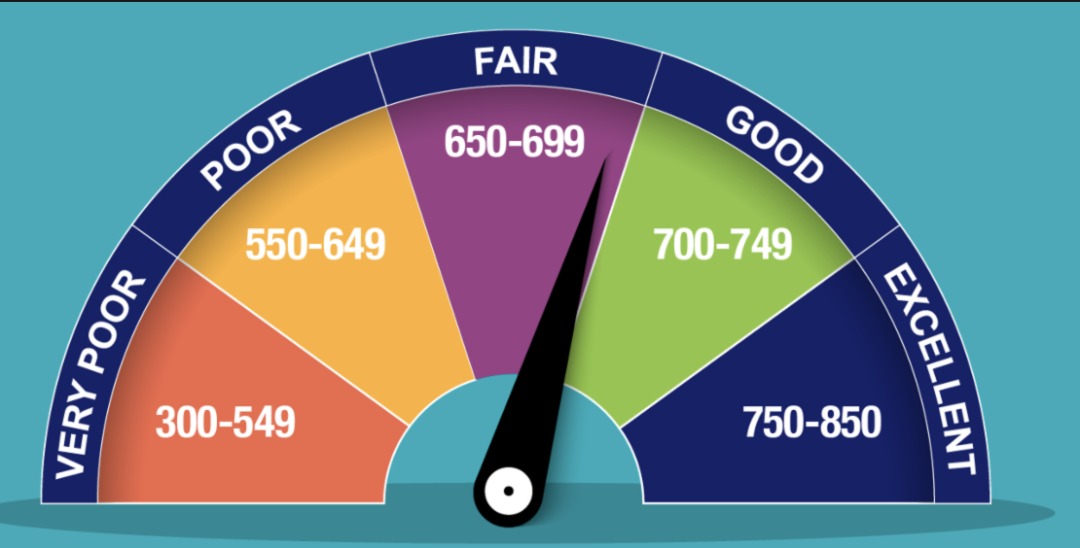Earning a positive credit reputation requires time, action and dedication. If you are just starting out, you will need to have an open and active loan account to have a credit history/profile. Upon attaining a credit profile, one has to make repayments on existing loans and/or postpaid products for at least three to six months before a credit history is built and used to calculate the score.
With the right strategy and established credit history, you will be on your way to building a credit score one can be proud of and that lenders will value. Here is what you can do to build an excellent credit score.
What is a Credit Score?
A credit score is a number that uses the information that appears on your credit report to estimate the risk associated with lending to you. Lenders refer to this score to help them determine their level of acceptable risk in lending to their customers. This is because credit scores are based on the idea that past actions are predictive of future behavior.
Consequently, the CRC Score, powered by FICO, is a 3-digit number, ranging from 300 to 850, that summarizes how risky it is for a lender or creditor to grant credit to a prospective borrower or customer. The lower the credit score the higher the level of riskiness or probability that the customer may default in payment. It indicates that your credit status is either; excellent, good, average or poor. Therefore, the higher the credit score, the lower the level of risk associated with the prospective borrower or customer repaying or defaulting. Lenders and creditors often use the CRC Score for various risk assessment purposes ranging from market expansion, pre-qualification of customers, to credit evaluation.
CRC Scores take five (5) elements into consideration when calculating scores and they are under constant review by credit grantors while taking credit related decisions. With this understanding they remain crucial in building excellent scores.
- Payment history (35%)
- Amount owed (30%)
- Length of credit history (15%)
- Credit Mix (10%)
- Pursuit of New Credit (10%)
In addition to the five elements above, keeping revolving balances well below your credit limit is essential to having an excellent score. For further insights on understanding how the CRC Score is calculated as well as how to boost your credit score please click on the link https://crccreditbureau.com/blog/boosting-credit-scores-becoming-more-eligible-for-credit-products.
It is important to build healthy financial habits to ensure the information that ends up on your credit report helps your score. In understanding how credit scores are calculated, it is also important to understand what does not go into a credit score:
- employment status and income, though they may be listed on a loan application.
- age, race or gender
- residential address
- other personal identifying information
Does Everyone Have a Credit Score?
Surprise! Not everyone has a credit score or credit report. Avoiding debt may seem natural to those just starting out in their career or people who do not wish to be known as “onigbese”, “onye ji ugwo”, “bashi”, but it may starve your credit report of vital data that can be used positively in making informed decisions.
Using credit and incurring debt—even very small amounts, you quickly pay off, makes the credit applicant less of a mystery to lenders. If you never take on debt or accessed a post-paid service or product, a lender will have no idea what kind of borrower you may be, which makes you inherently risky.
Without supplying sufficient information to your credit report for a long enough period of time, you are also likely to have what is called a thin credit file and may not have a credit score.
Recently opened credit accounts will appear on a credit report but may not result in a credit score until a history has been built, to enable the scoring to take place.
Active and performing loan accounts reflect positively on credit reports and scores while inactive and defaulting accounts reflect negatively.
Even if paid-off loans and credit cards still appear on your report, there may not be sufficient activity for the scoring model to create an accurate score, if there is no reported charge or a payment in 24 months.
How to Start Building Your Credit
If cash is the primary medium of exchange for goods and services and one is not looking to borrow money right now, you may think this does not apply to you. But what happens when the time comes to finance a car, take out a student loan or rent an apartment? Loan applications are more likely to be approved with a positive credit history.
As consumers, we can start with taking out a small loan and pay back in installments or accessing a credit card. Always ensure repayments are made at the agreed date with your lender and/or credit grantor to avoid being reported for defaulting in repayments.
Consider a credit mix and taking loans for specific needs, for example a personal loan for personal needs, a mortgage for buying a house or a car loan for buying a car. Remember that credit mix is one of the factors considered by lenders before extending credit and one of the parameters for calculating credit scores.
There is no better day to start than today.
References
- 5 ways to build credit with no credit history (June 2022) https://www.bankrate.com/personal-finance/credit/5-ways-to-deal-with-limited-or-no-credit/#apply
- Getting Credit With No Credit History https://www.equifax.co.uk/resources/loans-and-credit/getting-credit-with-no-credit-history.html
